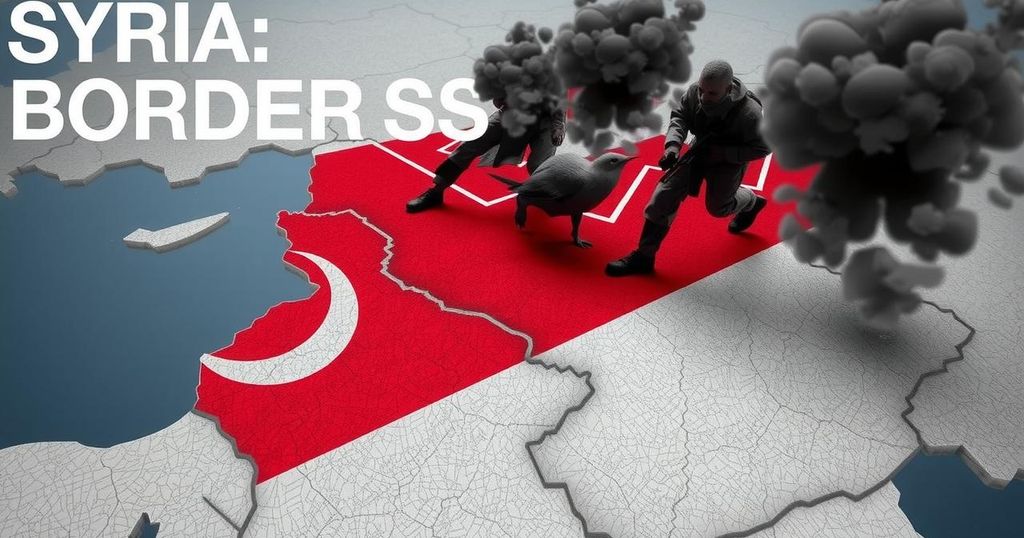Militant rebel groups in Syria led by Hayat Tahrir al-Sham have made significant territorial gains, advancing toward major urban centers. This alarming progress has prompted Lebanon and Jordan to close their borders, while Israel reinforces its military presence in the Golan Heights. Additionally, Kurdish forces have secured positions in eastern Syria, further testifying to the weakening grip of President Bashar al-Assad’s government amidst stagnant diplomatic efforts to resolve the conflict.
The Syrian civil war has faced a new surge as militant groups press southward, notably the coalition of rebel factions led by Hayat Tahrir al-Sham, which has recently made significant territorial advances toward Homs and the capital, Damascus. The rapid momentum of these rebels has incited anxiety among Syria’s neighboring nations, resulting in Lebanon and Jordan shutting down their border crossings and Israel escalating its military presence in the Golan Heights to mitigate potential fallout from the escalating conflict.
In a notable shift in the balance of power, a Kurdish-led contingent supported by the United States has also announced its deployment to the eastern city of Deir al-Zour, a strategic location previously under government control. This development underscores a decline in the authority held by President Bashar al-Assad, with the recent territorial gains posing an unprecedented challenge to his regime. The protracted Syrian civil war, often overshadowed by other regional conflicts, has remained a significant issue, with diplomatic efforts towards resolution remaining stalled for several years.
The advancing coalition, with roots in groups formerly linked to Al Qaeda, continues in its quest for power while attempting to distance itself from its past affiliations to gain broader legitimacy, despite facing persistent categorization as a terrorist organization by both the United States and the United Nations. The implications of these developments could be profound, not only for Syria but for stability in the broader Middle Eastern region.
The Syrian civil war, which has persisted since 2011, has plunged the country into a state of chaos, characterized by a multitude of factions vying for control. Recently, rebel groups, particularly those affiliated with Hayat Tahrir al-Sham, who originally had ties to Al Qaeda, have gained significant ground, threatening the central authority of President Bashar al-Assad. The escalation of violence and territorial shifts have led to heightened fears among neighboring nations, compelling them to take measures to protect their borders as the conflict appears to intensify. Furthermore, the stagnant diplomatic negotiations highlight the ongoing challenges in reaching a peaceful resolution to this protracted crisis.
The recent advances by rebel groups in Syria herald a potential shift in the ongoing civil war, showcasing the vulnerabilities of President Bashar al-Assad’s government. As neighboring countries take precautionary measures to secure their borders, the implications of these developments extend beyond Syria, potentially affecting regional stability. With ongoing international concerns regarding the designation of certain rebel factions as terrorist organizations, the complex interplay of power dynamics in the region remains critical to monitor.
Original Source: www.nytimes.com






